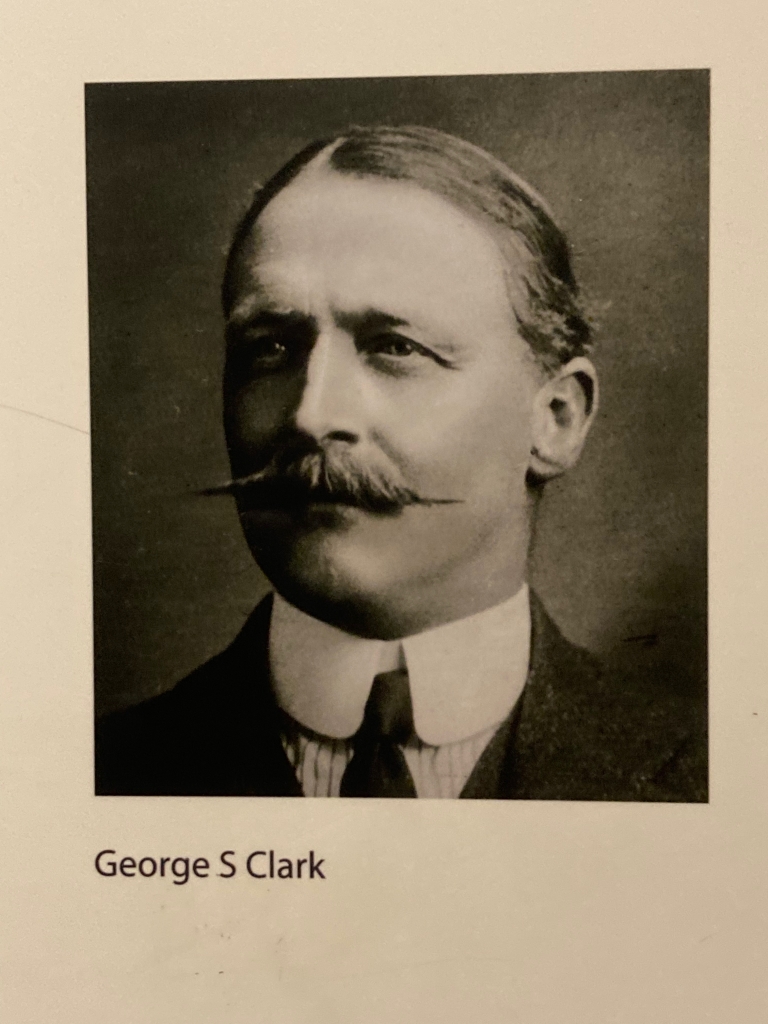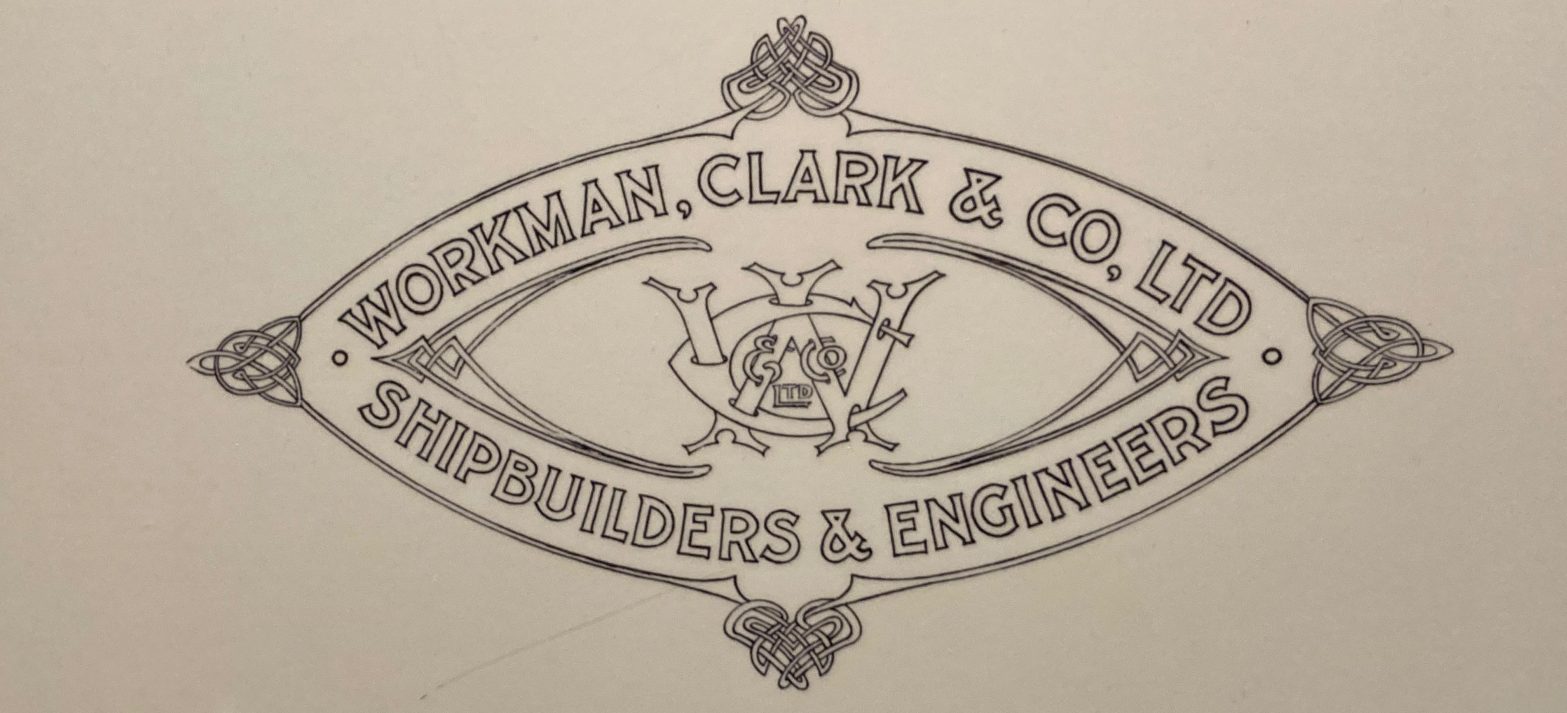Sir George Smith Clark DL (1861-1935) was born and educated in Scotland. Aged nineteen he went into partnership with his cousin Frank Workman to form the Workman and Clark shipyard in Belfast in 1880. Workman, Clark became one of the largest shipbuilding yards in the world, mostly producing medium sized ships for the passenger and cargo markets, while Harland & Wolff built the large luxury ocean liners, such as Titanic. Clark was mainly involved in management and sales, while Workman ran the technical aspects of the business. Clark married Frances Matier in 1881, daughter of Henry Matier, a successful linen manufacturer.

Clark was a staunch Unionist and friend of Sir Edward Carson, and supported his UVF gun running campaign in April 1914. Workman, Clark worked almost exclusively for the Admiralty during the First World War, employing 9000 men. Clark was awarded the baronetcy of Dunlambert in 1917 and the business was taken over in 1920, just as shipbuilding was going into a deep depression. He was active in politics and served as a Senator in the Northern Ireland Parliament 1925-1935. He also served as a director for various large organisations in Northern Ireland. His elder son, Geordie (1882-1950), was great friends with Dora. He was a Naval Architect who took on various public roles in Northern Ireland and inherited the baronetcy. He and his wife Norah had four children.
Sir George Smith Clark is buried in Belfast city cemetery, along with his wife. The Matier plot is adjacent.


